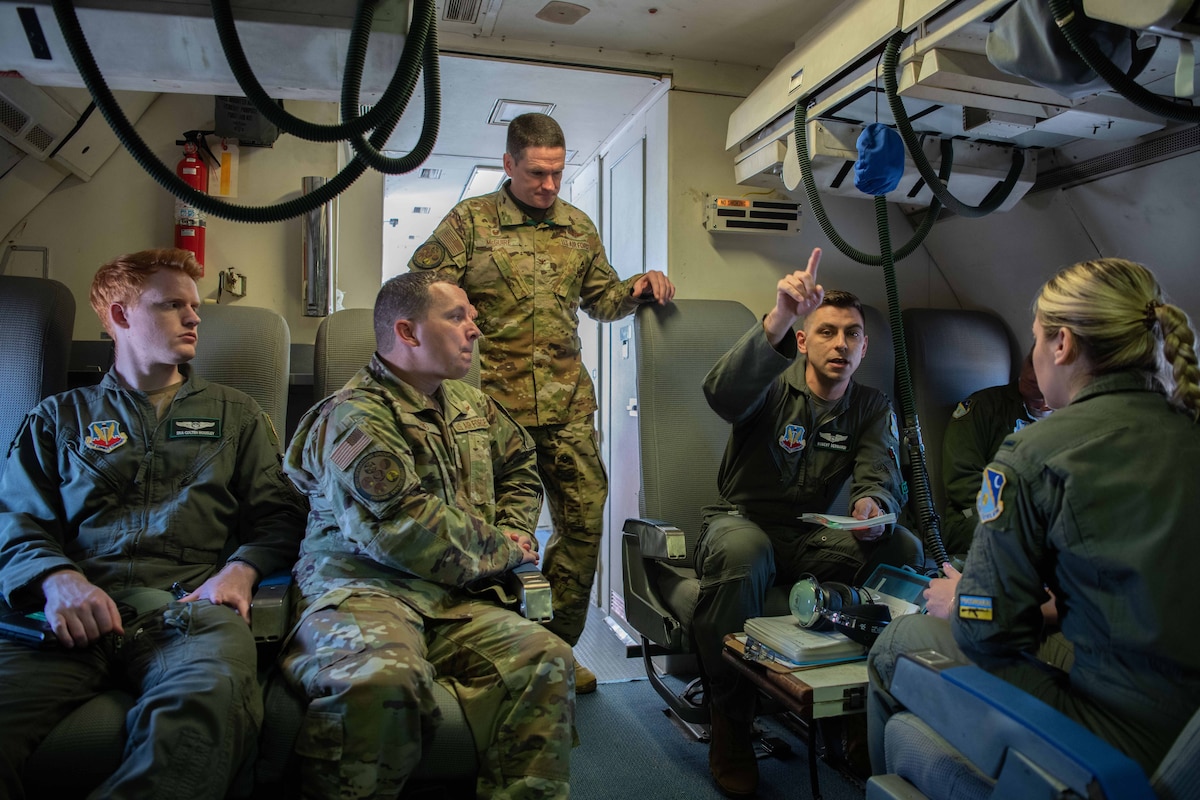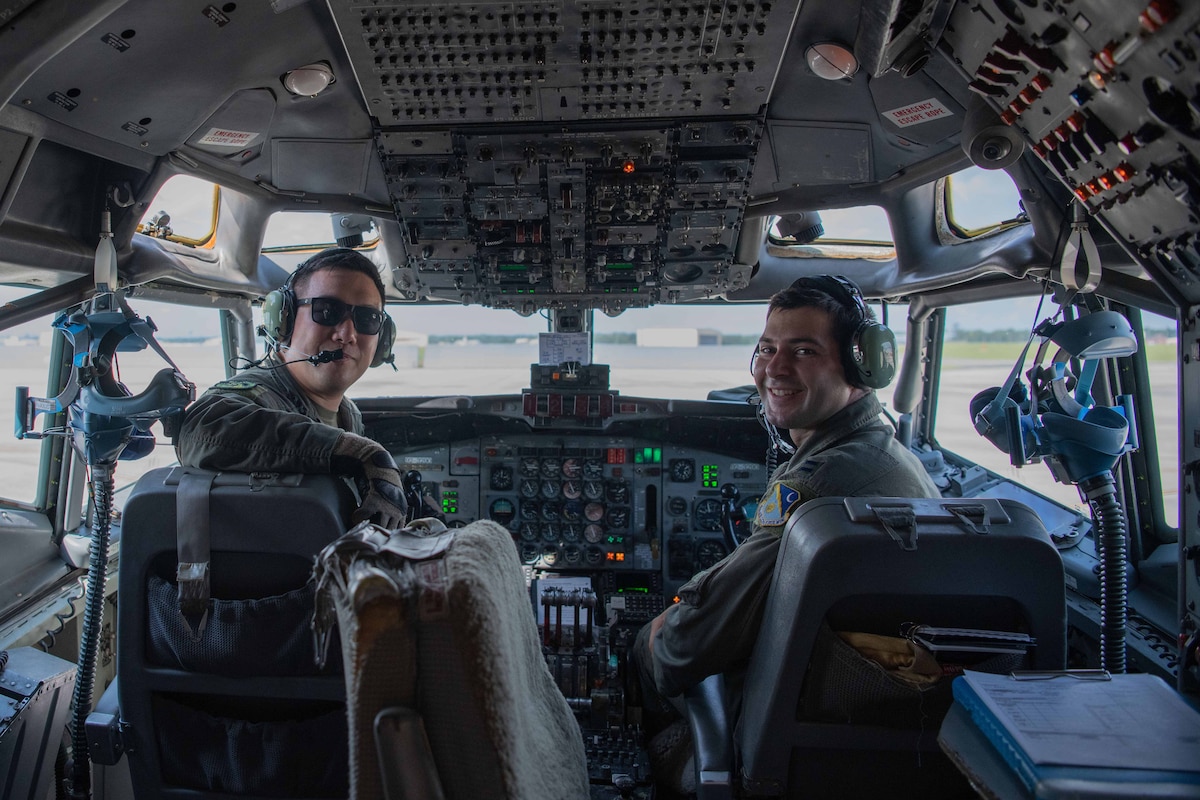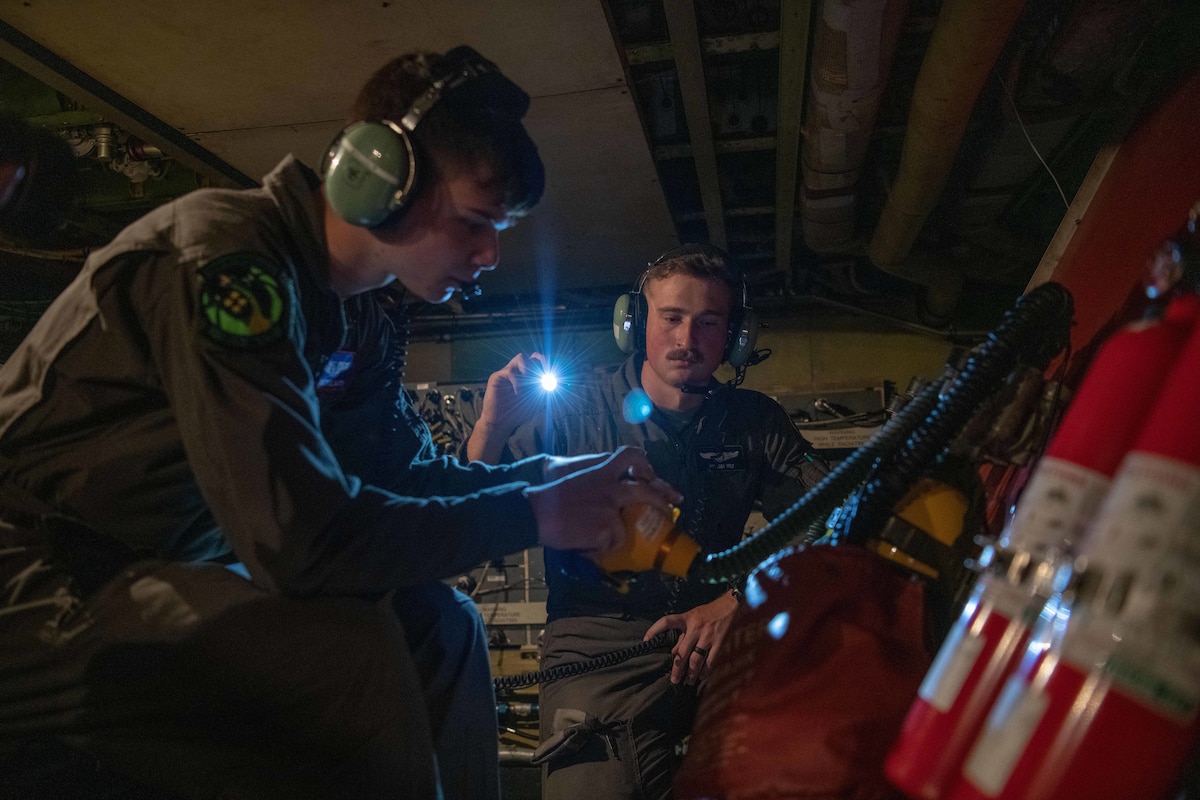After 27 years of decorated and dedicated service, the 12th Airborne Command and Control Squadron flew its last operational flight as KOMODO 1 at Robins Air Force Base, July 12.
For nearly three decades, the 12th ACCS has been flying missions across the country and the world on the E-8C Joint Surveillance Targeting and Attack Radar System aircraft. The 12th ACCS is the last JSTARS squadron to take flight as part of the 461st Air Control Wing. With the Air Force decision to divest and retire the aircraft, this flight is another signal that the JSTARS is in its twilight months.
KOMODO 1, members of the 12th ACCS and total force maintainers from the 116th Air Control Wing and 461st Maintenance Group, take pride in carrying out and supporting each sortie. While there was an emphasis on treating this final mission as any other flight, the members also recognized they played a role in the final chapter of the decorated history of the squadron and the greater JSTARS enterprise.
Lt. Col. Gerry Thompson, the 15th and final 12th ACCS commander, shared what he is most proud of.
"In the midst of all the changes inside of the 461st Air Control Wing, our Airmen could have easily let that distract them and forget about addressing concerns or helping one another-that has not been the case," he said. "Our Airmen have done a remarkable job taking care of each other and that's what I'm most proud of."
In his 27-year career, Thompson has spent a significant amount of time as a member of the 12th ACCS. He was the chief of weapons and tactics from December 2011 to June 2013, and served as the commander since March 2022. While he is always quick to put his Airmen first, he took time to reflect on his role in the JSTARS community and 12th ACCS history.
"For my final stint in the 12th, to be serving as the commander is the absolute highlight of my 27-year Air Force career," he said. "The men and women of this squadron have done some amazing things, and I'm just so happy to be a part of such an outstanding organization," he said.
Lt. Col. Nathan Anderson, 12th ACCS director of operations, agreed.
"The jobs our Airmen do is nothing short of miraculous," Anderson said. "It takes a special kind of team to keep these old airplanes not only flying, but relevant in an ever-changing battlespace. Even more surprising, however, is the demand for what we provide."
Anderson added, "It will be a sad day to close the doors one final time, but seeing our Airmen off to their new assignments with a smile on their faces reminds me that the 12th ACCS legacy will live on with lessons learned spread to every corner of the Air Force. The command and control, intelligence, surveillance and reconnaissance career field can be a thankless one at times. Success is often determined not by headlines that make the papers, but rather by the events that never come to fruition in the first place, thanks to the efforts which take place in the shadows. I'm proud to say the men and women of the 12th ACCS, and indeed the whole JSTARS enterprise, make a difference every day."
Senior Master Sgt. Dustin Chapman, 461st Aircraft Maintenance Squadron senior enlisted leader, expressed his gratitude for JSTARS maintainers.
"We're continually impressed by the remarkable work our maintainers accomplish to uphold the strength and readiness of our JSTARS fleet," Chapman said. "It is their tireless efforts behind the scenes that allow our aircrew to soar through the skies with confidence and protect our homeland. Their expertise, attention to detail and technical prowess contribute significantly to the safety and operational effectiveness of our wing."
While the 12th ACCS has called Robins AFB home for the last 27 years, it traces its history to 1942 during World War II as the 2nd Antisubmarine Squadron and, later, during the Vietnam War as the 12th Special Operations Squadron. It would not be until January 29, 1996, that the 12 ACCS was reactivated.
A few months after activation, the 12th ACCS supported the transition of forces from Operation JOINT ENDEAVOR to Operation JOINT GUARD (Bosnia) from October 1996 to January 1997. Then, the squadron was called to support Operation ALLIED FORCE (Kosovo) in 1999. After the terrorist attacks in New York City and Washington, D.C., on September 11, 2001, the 12th ACCS proceeded to have crews continuously deployed in support of the various operations within the Global War on Terror within the United States Central Command's area of responsibility.
The squadron has also flown countless homeland defense missions in support of United States Southern Command and Northern Command, in addition to deploying in support of the Combatant Commanders' objectives in United States European Command and United States Indo-Pacific Command. In recognition of their service, the 12th ACCS has earned six Meritorious Unit Awards, six Air Force Outstanding Unit Awards and one Air and Space Outstanding Unit Award.
Across the globe, the 12th ACCS flew 4,463 deployed sorties, totaling 44,517.9 hours, averaging nearly 10 hours per sortie.
Yet, for its final logged hours at home station, the flight was like any other 12th ACCS sortie: well-prepared, well-rehearsed and exceedingly well-performed, while ensuring safe and disciplined execution of the mission.
When KOMODO 1 landed at Robins AFB for the last time, the sun officially set on 12th ACCS' mission operations. The legacy of the squadron and the JSTARS are cemented into historic lore but paved the way for the bright future of Robins AFB as the starting point of Battle Management transformation within the United States Air Force.









